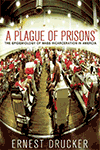
| Essential information for an informed debate about cannabis policy. |
|
|
Bill S-10 "Penalties for organized drug crime act" - Information Resources
Opposition to Bill S-10 / Mandatory Minimum Sentencing
 |
Department of Justice Canada - Research and Statistics Division "Severe [Mandatory Minimum Sentences] seem to be least effective in relation to drug offences. Studies using a variety of methodologies seriously question the value of the 'drug war' approach." |
 |
Department of Justice Canada - Research and Statistics Division Mandatory Sentences of Imprisonment in Common Law Jurisdictions: "... while the general public appears to favour the use of mandatory sentences for offenders convicted of the most serious offences and repeat offenders, there are important limits on public support for strict mandatory sentencing laws. When the public is provided with more information regarding the law and the circumstances surrounding the offence and the offender, the tendency is not to favour punitive sanctions such as mandatory minimum sentences." |
 |
Justice Minister Rob Nicholson (He opposed Mandatory Minimum Sentencing in 1988) Today, Rob Nicholson is leading the charge to impose MMS for drug offenses in Canada. Is Rob Nicholson a "flip-flopper"? |
 |
US "drug czar" Gil Kerlikowske "...lawmakers in “almost every single state” in the U.S. are looking to reduce mandatory minimum penalties because prison populations have exploded with non-violent drug offenders. [...] policy-makers should recognize there is “a distinct difference” between big-time narcotics offenders and others who come into the criminal justice system “who clearly have an addiction problem.” “Then the focus of the sentencing, the focus of whatever law that exists, should be as much treatment as any punishment.” That should include treatment of drug addictions behind prison walls. “Otherwise you’re just being dumb on drugs,” he said. (source) |
 |
US: Ernest Drucker - scholar in residence and senior research associate at John Jay College of Criminal Justice, City University of New York. He is professor emeritus of Family and Social Medicine at Montefiore Medical Center/Albert Einstein College of Medicine. Mandatory Sentencing for Drug Users: A Failed Experiment in the U.S. "...there is also a body of evidence from the U.S. that can inform Canada's decision on S-10 and help avoid the disastrous mistake that mandatory drug sentencing has been for the U.S." "By rejecting Bill S-10 and mandatory drug sentencing now, Canada can avoid a policy that will do far more harm than all the drug use it claims to deter."
Ernest Drucker is the author of: "A paradigm-shifting look at our criminal justice system that sees prisons as the problem, not the solution." |
Newt Gingrich, Grover Norquist and William Bennett are but a few of the conservatives promoting Right on Crime, which heralds “the conservative case for reform: fighting crime, prioritizing victims and protecting taxpayers.” Among the signers of the site’s “Statement of Principles” are former Attorney General Ed Meese, former “Drug Czar” Asa Hutchinson, and Bush’s former faith-based programs czar John DiIulio. “I think mandatory minimum sentences for drug offenders ought to be reviewed. We have to see who has been incarcerated and what has come from it.”
Conservative Republicans joined with Democrats in adopting incentive-based funding to strengthen the state's probation system in 2005. Then in 2007, they decided against building more prisons and instead opted to enhance proven community corrections approaches such as drug courts. The reforms are forecast to save $2 billion in prison costs over five years. |
|
 |
UK: Prime Minister David Cameron (United Kingdom) |
 |
Conrad Black Conrad Black: The case against being dumb on crime The most recent leaps backwards have been on mandatory minimum sentences, harsher marijuana laws and extension of almost all sentences -- all bad, unjust and expensive mistakes. Mandatory Minimum Sentences deprive judges of any discretion and pre-sentence convicted people without regard to individual circumstances. There is no rationale or excuse for confining those who are not physically dangerous, nor for reducing their access to treatment, which is cheaper, more effective, and more humane than prison, though less likely to appeal to knuckle-dragging deadbeats of the jail 'em, flog 'em, hang 'em school. |
 |
Libby Davies, NDP Spokesperson for Drug Policy "The reality is that mandatory minimums do not deter organized crime. Instead, they affect almost exclusively the small dealers, street traffickers, and non-violent offenders while leaving the door open for organized crime to step in and fill the void created at the lower levels. Mandatory Minimums for drug sentences increase enforcement costs exponentially, and the burden on the criminal justice and prisons systems is great."
[excerpt] Overall Concerns:
April 23, 2009 - The National Post New Democrat Libby Davies questioned Justice Minister, Rob Nicholson as to what evidence he had to support the idea that minimum mandatory jail terms will reduce crime. Ms. Davies cited studies prepared for the Justice Department several years ago showing that automatically jailing drug criminals does nothing to deter crime, as has been shown in the United States. "Many States are repealing their mandatory minimums," Ms. Davies said. Mr. Nicholson declined to supply any evidence to the contrary, but he insisted that "we are absolutely convinced in our consultation with Canadians that this is welcomed across the country." more... Politics of fear: Harper's 'war on drugs' - Rabble.ca |
 |
Eugene Oscapella - Ottawa lawyer, founding member of the Canadian Foundation for Drug Policy, and former chair and member of the policy committee of the Canadian Criminal Justice Association http://cfdp.ca |
 |
Neil Boyd - criminologist, associate director of the School of Criminology, Simon Fraser University
Trying to Understand the Tougher Sentences of the Harper Conservatives: Health researchers slam Tory mandatory-minimum-sentence proposal for drug crimes "Bill S-10 will put small scale growers of marijuana in jail for a minimum of six months, even though the RCMP's study of some 25,000 cultivation files reveals that violence or the threat of violence among cultivators is rare," stated Neil Boyd, professor and Associate Director of the School of Criminology at Simon Fraser University. "We will be spending tens of millions of dollars to imprison individuals who represent little if any real threat to the public." Doctors, scientists want proposed federal drug law scrapped "[The proposed law] won't have much impact on crime rates or drug use, other than you are going to have a lot more people in jail," said Neil Boyd. "Arrest data suggest that we will have a doubling of the prison population in B.C. just to house marijuana offenders."
|
 |
Charles Pascal - Professor at the University of Toronto and a former Ontario deputy minister Harper tough on crime but soft on facts Stephen Harper’s legislative agenda on crime reinforces the notion that he has created a fact-free zone in Ottawa. According to a thorough analysis of the government’s initiatives, more than 30 per cent of Harper’s current parliamentary docket is devoted to a bundle of fear-factor “tough on crime” bills. All of this at a time when crime stats are going south. And the human and fiscal costs of all of this are staggering. |
 |
Megan McLemore - Senior researcher in the Health and Human Rights Division of Human Rights Watch Why Canada Should Reject Bill S-10 Canada has been a regional leader in drug policy, but Bill S-10 would waste billions of dollars on ineffective approaches that only appear to be tough on crime. |
 |
Jeffrey Simpson - The Globe and Mail's national affairs columnist "There’s a difference between being serious about crime and playing political games with it. And what we have, sadly, is the politics of sloganeering about crime, rather than serious measures." "The Liberals and NDP are already being accused of being "soft on crime" because they wound up opposing (sometimes belatedly) the Conservative measures. They will be accused of all manner of threatening civil order in the election campaign because they opposed these measures. Never underestimate on this issue the Conservatives' ability and willingness to engage in sloganeering, fear-mongering and base politics, as parties often do with crime." |
 |
Irwin Cotler - Liberal Member of Parliament for Mount Royal and the former Minister of Justice and Attorney General of Canada. Mandatory Minimums Not Effective |
Erika Sasson - Former federal prosecutor in Toronto Convicted members of organized crime are generally incarcerated for much longer periods of time, so a mandatory one-year sentence will have no meaningful deterrent effect. Rather, it’s the low-level street dealers who should be alarmed. |
|
 |
Urban Health Research Initiative (uhri.cfenet.ubc.ca) Proposed “tough on crime” policies such as mandatory minimum sentences will be costly for taxpayers and may actually increase violence in Canadian communities. Letter to Government Expressing Opposition to Bill S-10 (*letter includes 564 signatories) |
 |
Church Council on Justice and Corrections (CJCC.ca) |
Law Enforcement Against Prohibition (www.leap.cc) Novemeber 25, 2009 (transcript) |
|
| John Howard Society (www.johnhoward.ca) Ineffective, Unjust and Inhumane: Mandatory Prison Sentences for Drug Offences http://www.johnhoward.ca/media/FinalSubmission_Bill C-15_April 2009.pdf |
|
Elizabeth Fry Society (www.elizabethfry.ca) |
|
Canadian Bar Association (www.cba.org) |
|
 |
National Association of Criminal Defense Lawyers (www.nacdl.org) U.S. org Warning to Canada: Resolution Regarding Canada’s Proposed Mandatory Minimum Sentences |
| Families Against Mandatory Minimums (FAMM.org) U.S. org Read the transcript of FAMM's October 28, 2009 appearance before the Bill C-15 Senate Committee (Mary Price, Vice-President) |
|
 |
Canadian Center for Policy Alternatives (www.policyalternatives.ca) http://www.policyalternatives.ca/search/node/mandatory minimums The Fear Factor: Stephen Harper’s “Tough on Crime” Agenda http://www.policyalternatives.ca/publications/reports/fear-factor |
 |
Canadian Civil Liberties Association (www.ccla.org) CCLA’s submission to the Bill C-15 Standing Committee on Justice and Human Rights (PDF) |
 |
British Columbia Centre for Excellence in HIV/AIDS (cfenet.ubc.ca) Effect of Drug Law Enforcement on Drug-Related Violence: Evidence from a Scientific Review (UHRI REPORT) http://www.cfenet.ubc.ca/publications/effect-drug-law-enforcement-drug-related-violence-evidence-scientific-review-uhri-repor |
 |
Canadian HIV/AIDS Legal Network (www.aidslaw.ca) An open letter to the federal Ministers of Justice and Health (Bill C-15) |
| National Community Justice Coalition (www.prisonjustice.ca) Audio Interview: Rabble Podcast: Bill S-10 - More mandatory minimums for drugs |
|
 |
Canadian Students for Sensible Drug Policy (www.cssdp.org) No Mandatory Minimums! Campaign |
 |
NORML Canada (www.norml.ca) NORML Canada, as part of its Resolving Prohibition Tour 2011, seeks to expand national dialogue about Bill S-10 and to educate Canadians about this dangerous legislation through a series of public meetings held throughout the country. |
Yet More Groups Opposing Bill S-10... - AIDS ACTION NOW! |
Don't believe the Conservative spin! |


